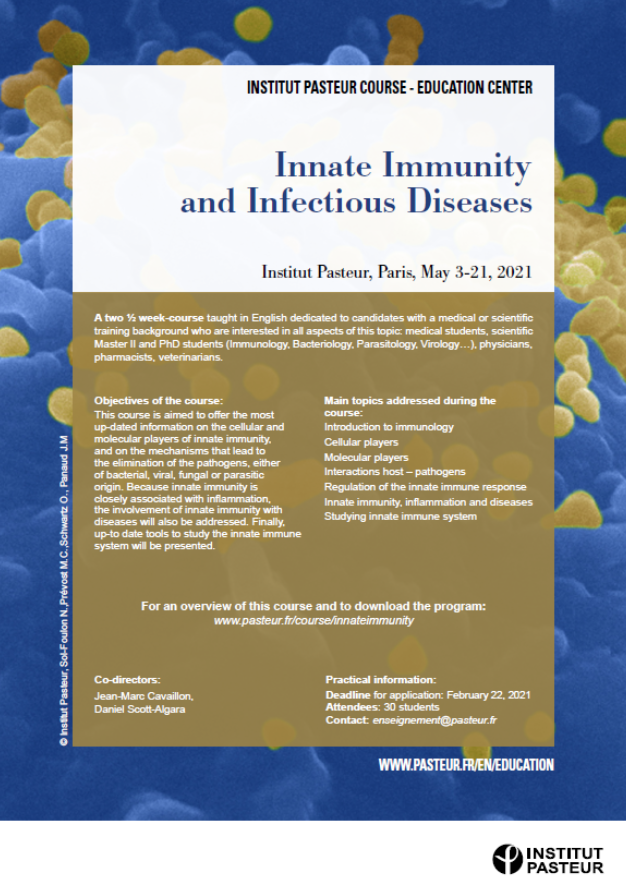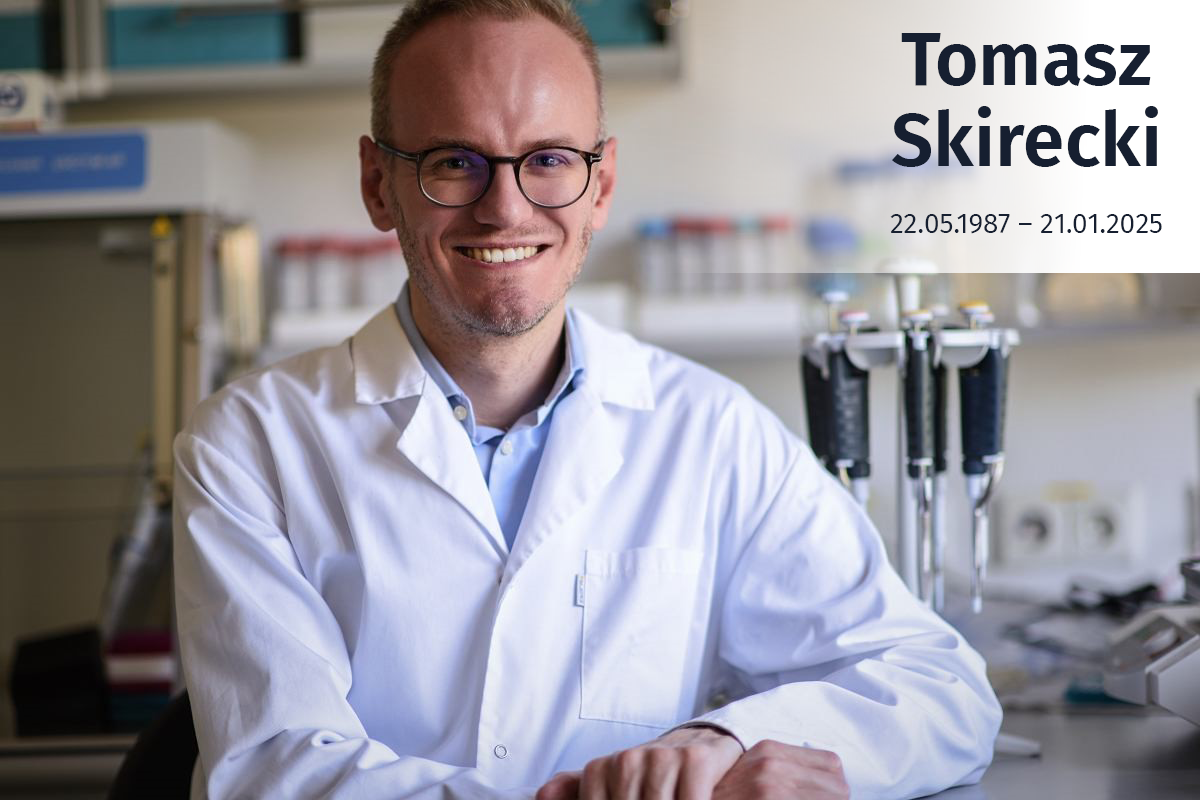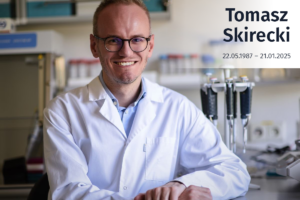This two and half week long course, which will take place from May 3, 2021 to May 21, 2021, offers lectures on the players and on the mechanisms of the innate immune system and inflammation involved in the defense of the host against pathogens. It also offers lectures on the new tools allowing to study the immune system.
After the discovery of phagocytosis, 135 years ago by Elie Metchnikoff, innate immunity underwent a rebirth following the new definition of the immune system by Charles Janeway and Polly Matzinger and the discovery of the “pattern recognition receptors” awarded by the Nobel Prize in 2011. The understanding of the mechanisms that control infectious insults have been deciphered these last years, and a precise role of each of the players is now better understood. Not only innate immunity is common to all animal species, but for those which also have at their disposal an adaptive immunity, the contribution of innate immunity is a prerequisite for its involvement. Most recently, a memory in innate immune system has been described and contributes to better innate and adaptive responses.
This course is aimed to offer the most up-dated information on the cellular and molecular players of innate immunity, and on the mechanisms that lead to the elimination of the pathogens, of either bacterial, viral, fungal or parasitic origin. Because innate immunity is closely intricated with inflammation, the involvement of innate immunity with diseases will also be addressed. Finally, up-to date tools to study the innate immune system will be presented.
Co-directors
Jean-Marc CAVAILLON (Institut Pasteur, Paris; Agence Nationale de la Recherche) and Daniel SCOTT-ALGARA (Unité de Biologie cellulaire des lymphocytes, Institut Pasteur, Paris)






